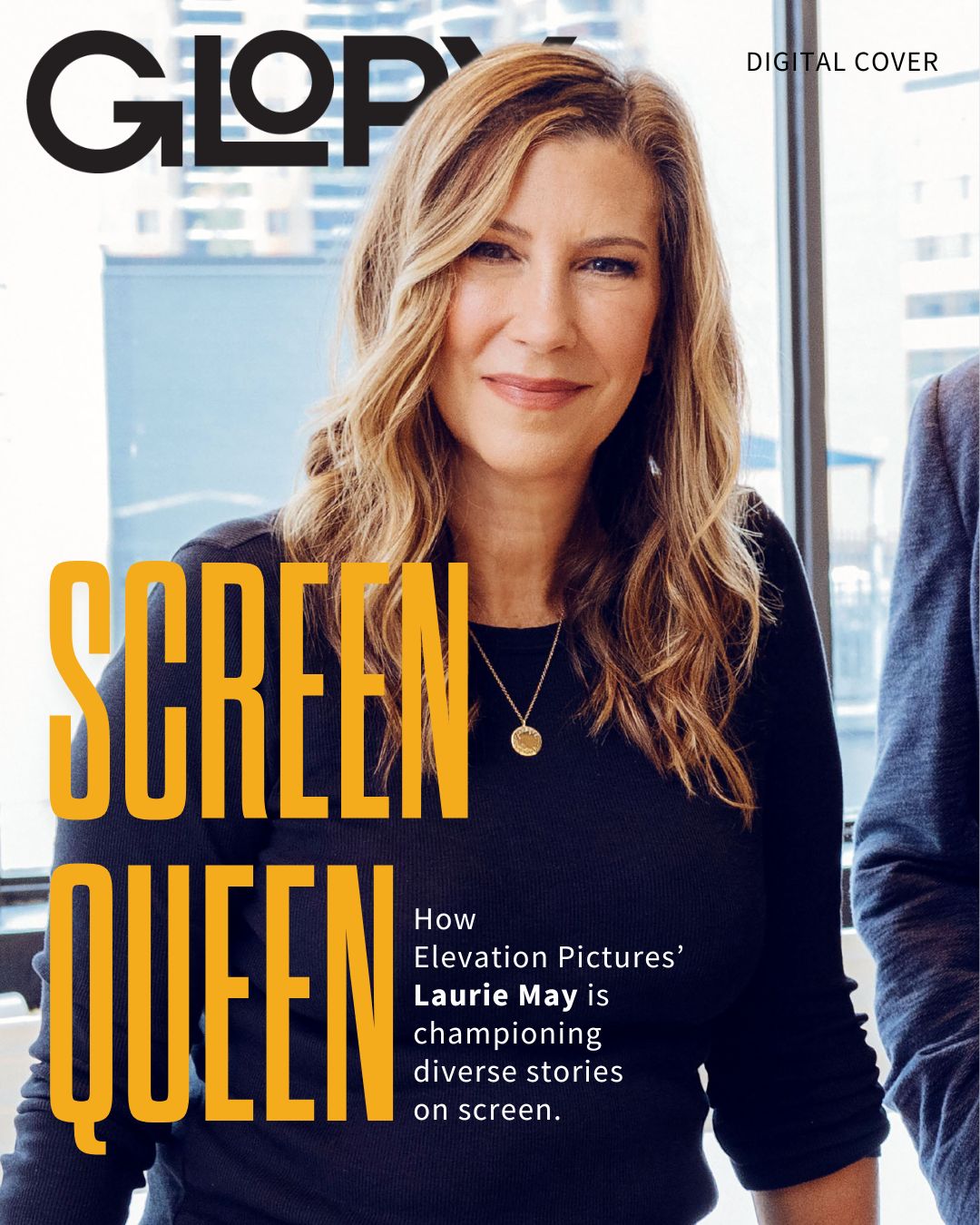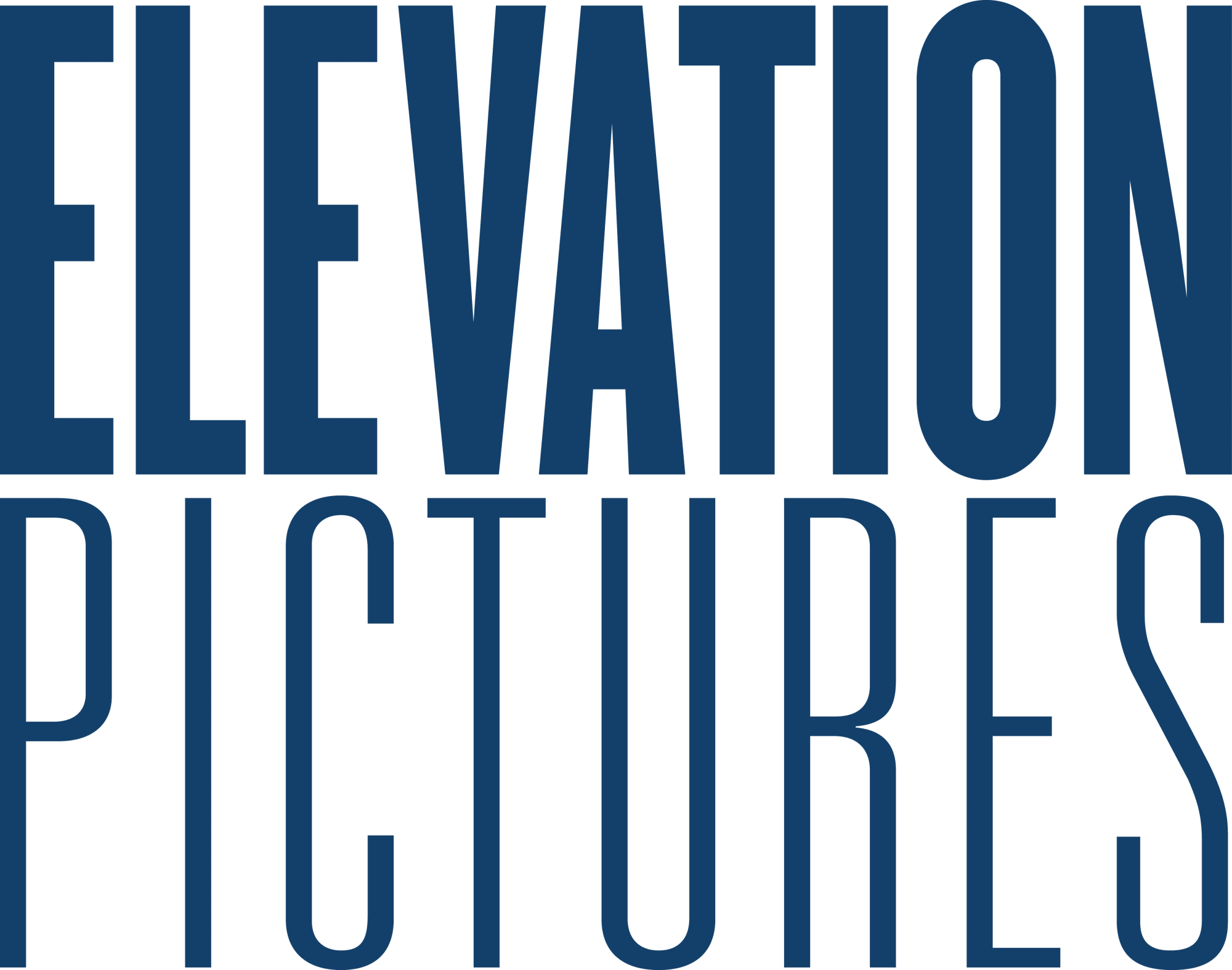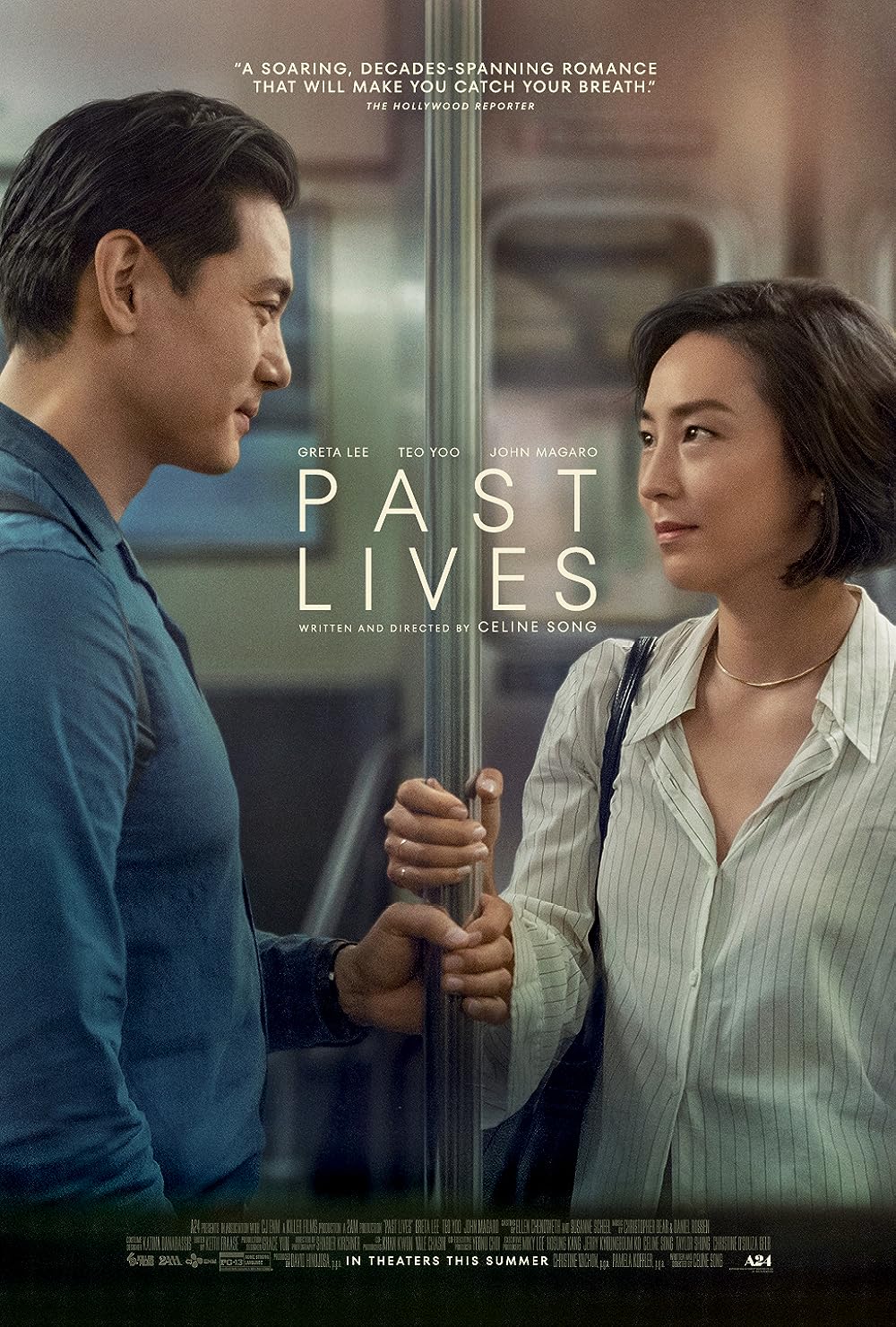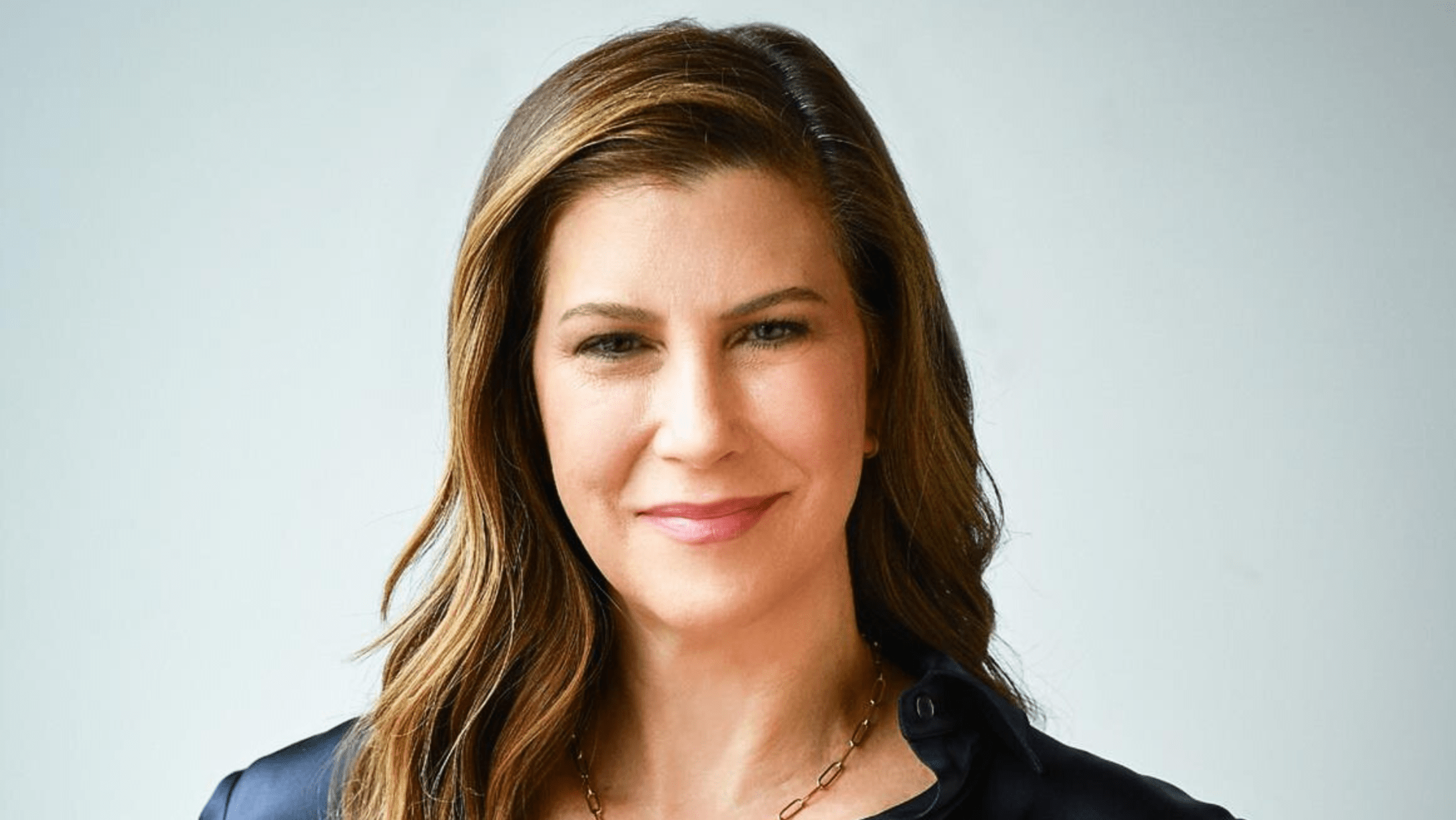In a landscape where diversity in storytelling is both sought after and celebrated, Laurie May has long been a guiding force that continues to shape the narrative voice of the film industry. As co-founder and co-president of Elevation Pictures, a Canadian distribution and production company, May’s vision has always been to make an impact by telling a wide range of independent stories that resonate with audiences—to help viewers feel acknowledged and represented. (After all, cinema, along with all other forms of artistic expression, can serve as a powerful reflection of the world around us.)
Since launching at the 2013 Toronto International Film Festival, Elevation Pictures has gone on to release award-winning films, including The Imitation Game, Room, Moonlight, Everything Everywhere All At Once, and most recently, Past Lives, The Zone of Interest, and Anatomy of a Fall.
With a new milestone under their belt (Elevation Pictures recently celebrated their 10-year anniversary), May is looking ahead to build a future where the cinematic experience remains a shared sanctuary, fostering connection and dialogue amidst a world hungry for authentic narratives and meaningful discourse.
For GLORY, Editor-in-Chief Lance Chung chats with May in his exclusive cover story about her fascinating career journey, the business of movies, and telling diverse stories.


You’ve been in the business for 20 years, with roles at Entertainment One, Alliance Film, Lionsgate, and Maple Pictures, which you founded. What drew you to the world of movies?
Laurie May: Movies have a universal appeal because they’re fantasy worlds that attract a lot of people. I’ve always seen the world through rose-coloured glasses. I have always loved storytelling and advertising. My journey through psychology, journalism, law, and finally entertainment law allowed me to immerse myself in the film industry, which I find fascinating.
From your perspective, what makes a great story worth telling, investing in, and amplifying?
Laurie May: When we started Elevation [Pictures], the name ‘Elevation’ actually is because [we wanted to] elevate content. Studios like Warner, Disney, Fox, MGM, Paramount, Sony—they’re basically called the majors, and they develop product, greenlight, cover the marketing of a film, and release it worldwide. Everything else is referred to as independent film, which is independent of a studio. (There are also mini-majors, like Lionsgate and A24.)
Studios really focus on the tentpole films, meaning [they fill] all four quadrants: male, female, young, and old. They sell a lot of tickets and popcorn.
The independent space gets to be a little more niche and innovative. They get to tap into the zeitgeist and tell relatable stories that might not fit all four quadrants. Movies like Lady Bird showcased a very relatable snapshot of a mother-daughter relationship, and Moonlight, which went on to win an Academy Award for Best Picture, was a very important coming-of-age story.
In the independent space, the films that stand out to us are the ones that move, educate, and enlighten. They might not appeal to all four quadrants but are important stories that need to be told. Sometimes those movies capture the zeitgeist and become Everything Everywhere All At Once and win seven Academy Awards, including Best Picture. Independent films allow for more risk-taking and innovation, and that’s where the magic is.
Building on that, what does innovation look like within the film industry, especially the independent space?
Laurie May: I like to remain in touch with what people are interested in. Innovation in the independent space involves finding unique stories that tap into the zeitgeist. At Elevation Pictures, we buy films before they’re made. We also acquire films at the finished film stage but the risk of buying a film at the pre-financing stage is that you don’t know what it’s going to look like on execution. You just hope that it’s really going to work. Sometimes, you get pleasantly surprised with something like Everything Everywhere All At Once, and other times, you’ll watch the finished film and know that it’s not going to be a huge blockbuster, but it’s still great. Independent films have the freedom for more niche and innovative storytelling, making them stand out.


What has your experience in the industry taught you about creating space and opportunity for others?
Laurie May: In the past, storytelling was more black and white. There was the classic Miramax drama for the older crowd, the big action film for the male crowd, the romcom for the women, and animation for the little ones. Then the focus changed to be about telling good stories, and not the same stories over and over again.
[Independent movie] budgets range from a micro budget of $500,000 to $60 million; most of them live in the five to $30 million space. You can take a little more risk with these movies because you don’t need to make $100 million at the box office. You can tell stories like Brother, which is set in Scarborough and deals with loss, violence, and different economic communities. That was a no-brainer for us to sign on right at the outset because those are stories of Toronto that you don’t see, and they’re important and relatable.
RELATED: How Toronto Symphony Orchestra CEO Mark Williams is Charting a Course for the Future
Considering your journey in the industry, did you always have a strong sense of self and perspective?
Laurie May: As a woman, I’ve had some challenges in the film industry, and I don’t think it’s singular to the film industry. The #MeToo movement came out of the film industry. There was a boy’s club in Hollywood, so to speak. As a strong, educated woman, I had to navigate my way up. I still have places to go and I’ve got to this level because I liken it to climbing a mountain. Everyone is climbing a mountain and you’re carrying some rocks, and new rocks get added (a child, an aging parent, your spouse, etc.). There’s also people at the top of the mountain throwing rocks at you, wanting you to get off their mountain.
At first, when a few shots hit me in the beginning, I’d ask myself what I was doing. I had imposter syndrome. Then, as I got stronger, I realized that I knew what I was doing and became my own Wonder Woman. I put on my bracelets and deflected the shots that were coming at me. That just comes with age and experience.
My superpower is my calmness. If somebody criticizes me, and they’re right, I will learn from it and try to do better. If I disagree, I’ll just politely try to find a resolution and move forward. Developing that kind of confidence doesn’t come from arrogance, it comes from doing the self work to continue—meditation, going for a walk, working out, eating healthy. The best thing you can do is just work on yourself so that you can lead and help others.


Elevation Pictures recently celebrated its 10th anniversary. What’s the most significant lesson you’ve learned about leading a company over the past decade?
Laurie May: Choosing the right investors and partners is crucial when starting a company. You’re doing a lot together and want to make sure that you share values and vision. When we started, we were introduced to potential investors by Creative Artist Agency, and we were fortunate to align with Teddy Schwarzman of Black Bear Pictures. Beyond financial strength, Teddy shared our vision for growth, and that partnership has been instrumental in our success.
Secondly, it’s really important to be able to pivot. When COVID hit, theaters shut down but we had titles that were already finished and had to be delivered, all while people were sitting at home bored. Our publicity team had to be very innovative and find a way to create the same excitement for our films and pivot.
My business partner, Noah Segel, started a production division four years ago and started to produce films like French Exit and Infinity Pool. I don’t think it makes sense to diversify too much because you can overextend yourself and lose focus. But if it’s within your core competency, you can build on that.
Additionally, we hire outside agencies to reach diverse communities, ensuring our films resonate with a broader audience. Past Lives is a beautiful, Academy Award Best Picture nominee. A24 released it, which we loved and bought. We lean in to try and get people that might not otherwise come to the theater. It gets people sharing because they care.
RELATED:
Looking ahead, what is your greatest hope for the next 10 years?
Laurie May: My hope is for the continued prominence of the theatrical experience. While streamers have played a significant role, I believe the shared experience of watching a film in a theater is unparalleled. I also hope for ongoing innovation, with a focus on new stories, diverse voices, and representation. It’s essential to maintain a balance, giving films a theatrical release before transitioning to streaming platforms, thus keeping all avenues alive.
What is your mission?
Laurie May: At the core of my mission is making the world a better place. This involves inspiring young women, contributing to the community through charitable work, and, most importantly, telling stories that resonate with audiences. Through the power of storytelling, we can create shared experiences, promote understanding, and emphasize our commonalities. It’s about appreciating the beauty in the world, fostering empathy, and using storytelling to unite people.
This interview has been edited and condensed for clarity. Listen to the full conversation on the Mission Critical podcast.













